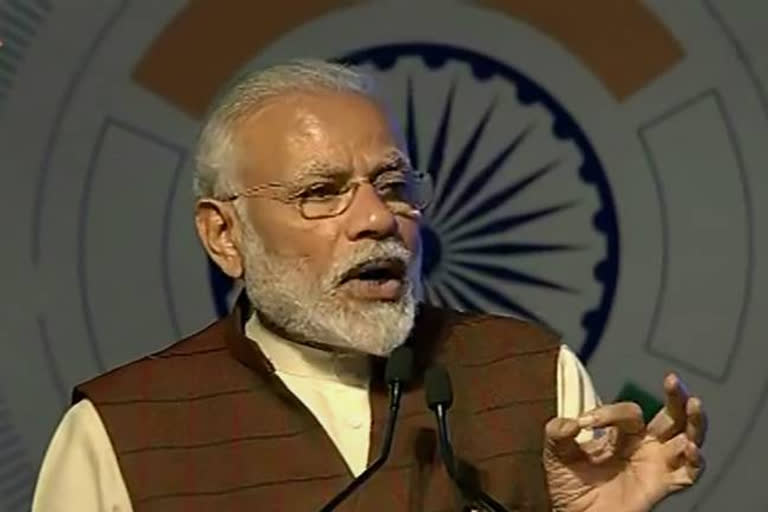New Delhi: Prime Minister Narendra Modi Saturday said 1.3 billion Indians have disregarded apprehensions and "wholeheartedly" accepted recent critical judicial verdicts which were subjects of global discussion.
Speaking at the inaugural function of the International Judicial Conference 2020 'Judiciary and the Changing World' at the Supreme Court, Modi spoke about recent crucial judgements, in an apparent reference to path-breaking verdicts including in the politically-sensitive Ayodhya case.
The Prime Minister said no country or society in the world can claim to achieve holistic development without gender justice and referred to laws on transgenders, 'triple talaq' and on the rights of 'Divyang' (persons with disabilities).
He said the government has also taken steps to give rights to women in military service and in providing paid maternity leave for 26 weeks.
He also hailed the Indian judiciary for redefining environmental jurisprudence to strike a balance between development and ecological protection.
Modi, while emphasising on the use of technology and the internet, said it would help in procedural management of courts and would benefit the justice delivery system to a large extent.
Read:FIR registered against Waris Pathan for 'communal speech'
"We are proud of having developed such a rich tradition in India. In the last five years, various institutions of India have further strengthened this tradition".
He also referred to the Centre's endeavour in repealing 1,500 archaic laws and said, "Speed has been demonstrated not only in doing away with irrelevant laws but also in enacting new legislations aimed at strengthening the social fabric".
The Indian Constitution guarantees gender justice under the provisions of the right to equality, Modi said, adding that India is "among few nations which has ensured the right to vote for women since independence".
He also referred to his government's flagship programme 'Beti Bachao Beti Padhao' to stress the steps taken by it to empower women.
"Similarly, the government has brought about many changes, whether it be the appointment of women in military service or in the selection process of fighter pilots or regarding their freedom to work in the mines at night," he said.
